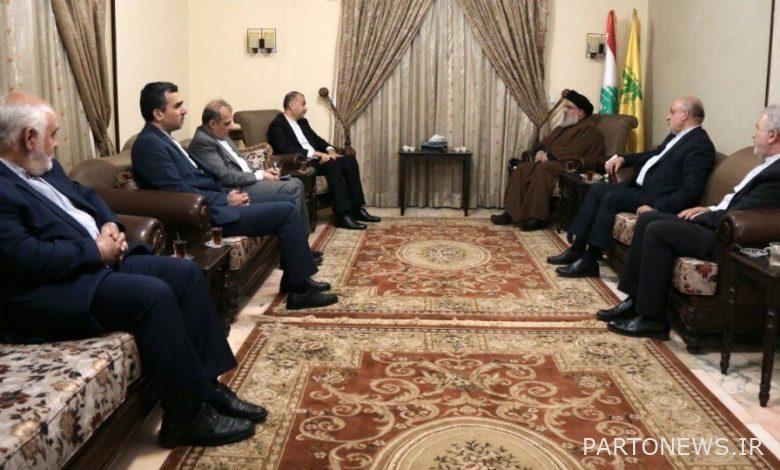Al-Akhbar claim: Indirect negotiations between Lebanon’s Hezbollah and Saudi Arabia – Mehr News Agency | Iran and world’s news

According to the Mehr news agency, the Lebanese newspaper Al-Akhbar in a report titled “Dialogue between Riyadh and Hezbollah through a third party?” He claimed: What was not discussed in the media during the visit of Iranian Foreign Minister Hossein Amirabdollahian to Lebanon is considered more important than the issues that were discussed.
What is usually mentioned about such trips is support for the Lebanese government, army and resistance, along with the readiness to provide assistance in various fields and encourage the Lebanese to reach an agreement. But the issues hidden from the media during this trip are much more important. This kind of information is not usually presented in official meetings, but it is discussed in the meeting between Hossein Amirabdollahian and Seyyed Hassan Nasrallah, Secretary General of Hezbollah in Lebanon, in the current sensitive situation. The information received by Lebanese officials, citing a Saudi official, contains the message that Saudi Arabia has started negotiations with Iran, Syria and the regime of President Bashar al-Assad, and the scope of these negotiations will soon include Lebanon’s Hezbollah.
In the continuation of this report, it is stated: Unofficial information in Beirut is complementary to what was mentioned. This information indicates that a line of dialogue between Hezbollah and Saudi Arabia through a third party has been opened or will be opened soon. These events are taking place in a situation that is reminiscent of King Abdullah’s meeting in 2007 with Naim Qassem, Deputy Secretary General of Lebanon’s Hezbollah, and Mohammad Fenish, one of the party’s representatives in Saudi Arabia. After this meeting, there was a long-term media war between the two sides.
Regardless of whether these efforts succeed or fail, we are witnessing a new phase in which Saudi Arabia is rethinking its regional relations. Meanwhile, Saudi Arabia is facing unprecedented challenges from Yemen to Lebanon and America in the recent period.
Another issue that has not been publicly discussed in the media during these meetings is the issue of the Lebanese presidential election. What is frequently heard from Tehran and Damascus, both of whom are interested in Lebanon’s affairs, is that the Lebanese case, including its presidential elections, is in the hands of Hezbollah and the party’s secretary general as the sole authority. Earlier, Suleiman Faranjieh, the second Shiite candidate of the election, had emphasized that Bashar Assad should coordinate with Nasrallah in this regard.
In the continuation of this report, it is stated: These words were also mentioned by Najib Miqati, the Prime Minister of the Government of Progress, during the meeting with the President of Iran, Ebrahim Raisi, on the sidelines of the United Nations General Assembly meetings, but Raisi emphasized to Miqati that his government is in internal affairs. Lebanon does not intervene.
These positions show the correct approach of the Iranians in the field of moving the path of negotiations regarding the election of the president with Hezbollah of Lebanon. The messages sent from the region indicate that the Lebanon issue is not necessarily on the negotiation table of the influential parties, or at least it is discussed like other important cases in the region since the Iran-Saudi Arabia agreement was reached, such as Yemen and Syria.

